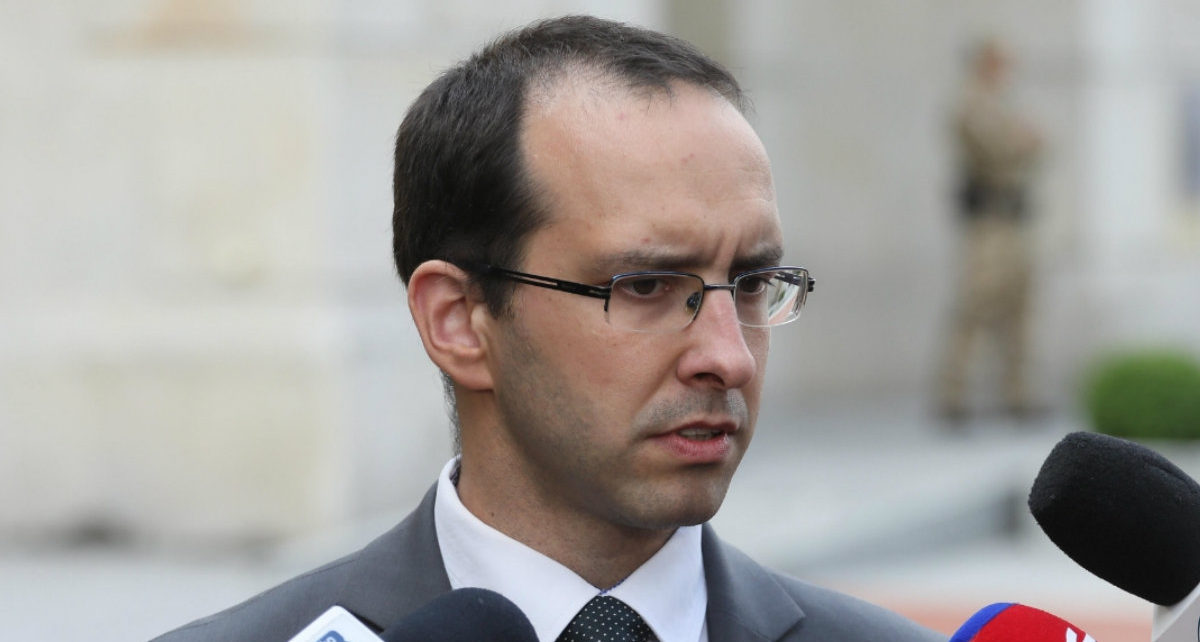By Stanisław Żaryn, for StopFake
The Russian Federation authorities have a long record of using blackmail, escalating demands and ‘expectations’ from the broadly defined West, which as Moscow reiterates ‘threatens Russia’s interests’. Recently, the Kremlin has been using these methods particularly often continuing its aggressive actions against Central European countries. Analyzing the message from the Kremlin, there is no doubt – Putin’s Russia considers the very existence of NATO a threat to its own interests.
Russia’s festival of expectations from the West began in earnest in mid-December. It was then that the Kremlin began calculating what it expected from the West under the new balance of power in Europe. To begin with, the long list of expectations included a promise not to expand the Alliance eastward (to include Ukraine and Georgia), to abandon military maneuvers that could be perceived as a ‘threat to Russia’s security’, to abandon military cooperation with Ukraine and to withdraw military infrastructure from third countries. In addition, the Kremlin demanded an end to military activity in Eastern Europe, the South Caucasus and Central Asia. In the months that followed, Moscow not only failed to revise its ‘demands’ but actually escalated them. Further demands began to be talked about in mid-January, at which time there were reports of demands for NATO to return to its pre-1997 status. After the meeting between U. S. Secretary of State A. Blinken and Russian Minister of Foreign Affairs S. Lavrov a similar demand was made officially: the Kremlin demanded the withdrawal of the Alliance troops from the territory of Romania and Bulgaria.
You can be sure that this enumeration will never end and the existing ‘expectations’ will be expanded. Russia, formulating such absurd demands, had to be aware from the very beginning of the inadequacy of its demands – they had to be rejected. However, there is no doubt, this case was not about real discussion. From the outset, Russia’s actions against NATO have been a form of response testing and a political game of strategic importance. Today it is clear that Russia is pursuing a very different agenda. This is why the Kremlin has largely sent special services people to take part in talks with NATO representatives. Filling the Russian delegation with people from the GRU or the SWR is evidence of Russia’s aggressive stance. This suggests that Moscow has an entirely different agenda at stake in these NATO-Russia talks.
Russia has remained an entity hostile to the West for years. Now Putin has recognized that he can try to achieve several goals important to Moscow at the same time. The Kremlin is trying to score more points in its imperial policy. It is trying to reach out to Ukraine, drawing it – by political and perhaps military means – into Russia’s sphere of influence. Moscow wants to de facto force the West to agree to return to its spheres of influence and gain the unwritten right to decide on third countries and even those that are already NATO members. The Kremlin has been softening the West through various methods, including using energy blackmail in addition to military pressure, diplomatic pressure and disinformation. It’s been apparent for months that Russia has been manipulating gas prices to force a quick agreement on Nord Stream 2, further increasing the West’s dependence on Russian raw materials. The current situation is already a gain from the imperial energy policy that has been in place for years. The situation of Central Europe after the launch of NS2 will be even more difficult. Additionally, Putin is still counting on being able to play the Alliance. Every dissent, every hesitation in response to Russian aggression is used by Moscow on behalf of its interests. To this day this tactic unfortunately benefits Putin.
It was clear from the beginning that meeting Russian expectations would compromise the Alliance – a country outside its structures, hostile to the Alliance, was to become a de facto joint decision maker in NATO’s internal affairs. And that means that Russia’s actions are about something other than finding an agreement with the West. Dialogue and the Kremlin’s participation in talks with the West is just a facade behind which Russia has been very eager to hide for years. By formulating demands and presenting a desire for dialogue, it will be able to show that the West is to blame for the crisis in Central Europe, that it is NATO’s hostility that makes Russia have to defend ‘its interests’. This facade has been built by Russia for years. And today, it is clear that this is not happening without a cause. In this atmosphere, all Putin needs is an excuse to start actions against the next countries to be taken as targets.
The decision to attack will depend not on the outcome of ‘talks’ with the West, but on the calculations and decisions of Vladimir Putin, who for years has been responsible for successive manifestations of Russian aggression. Putin will look at the potential costs of another aggression. And these will depend on the West’s real ability to maintain peace in Central Europe. So you can see that how the Alliance countries respond is of great importance today.
Stanisław Żaryn is Spokesperson of the Minister-Special Services Coordinator





